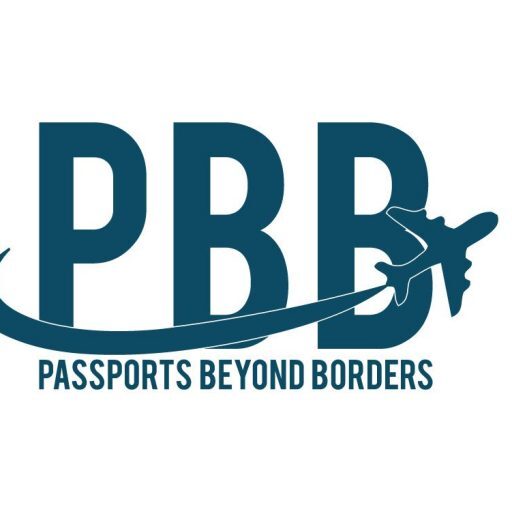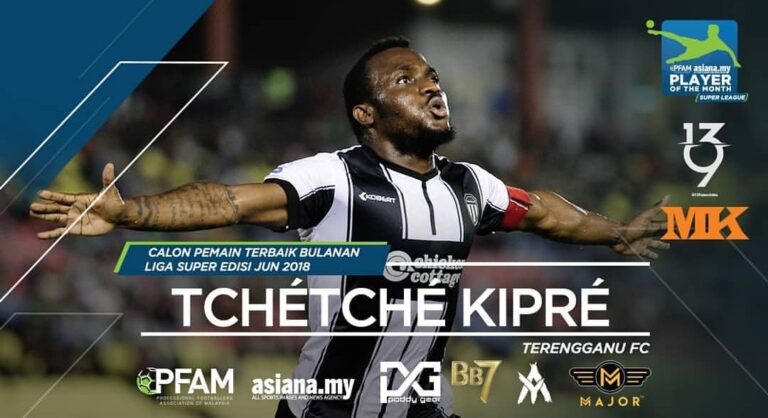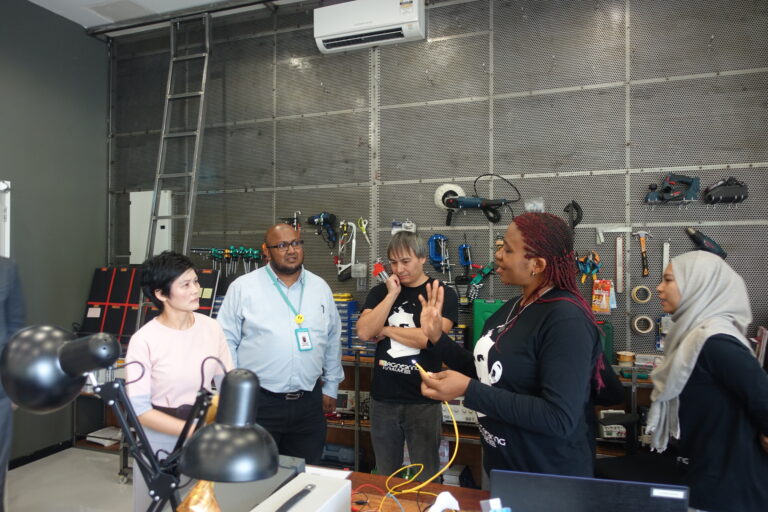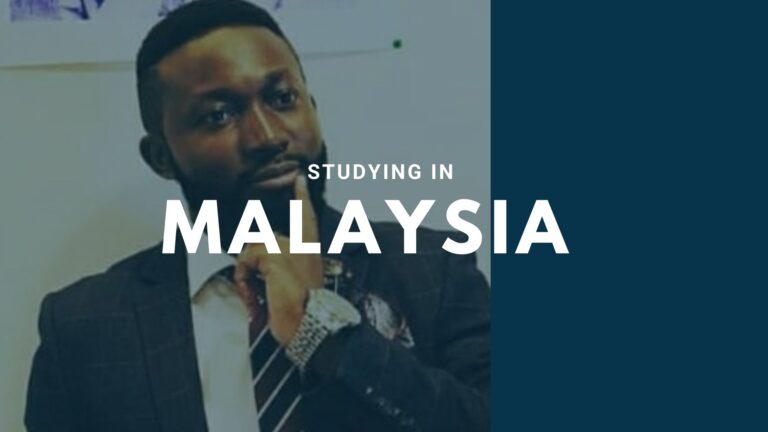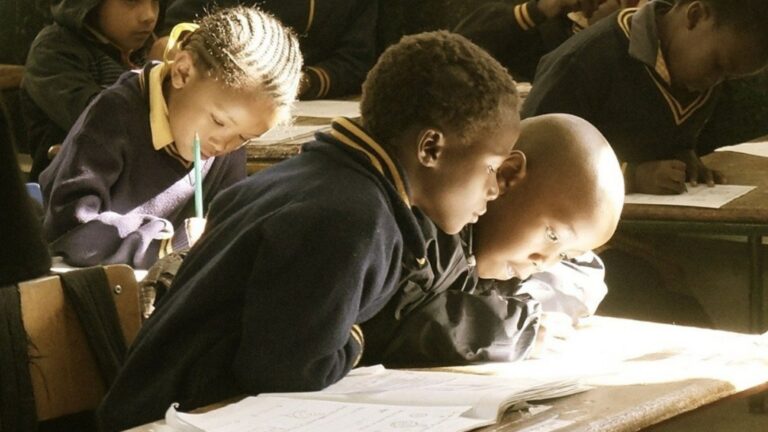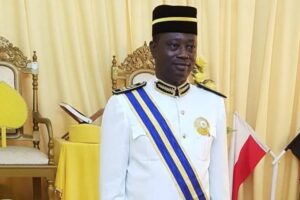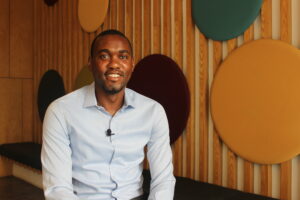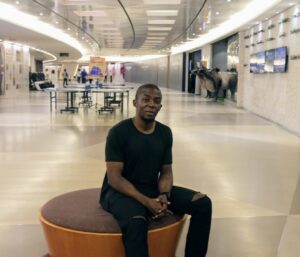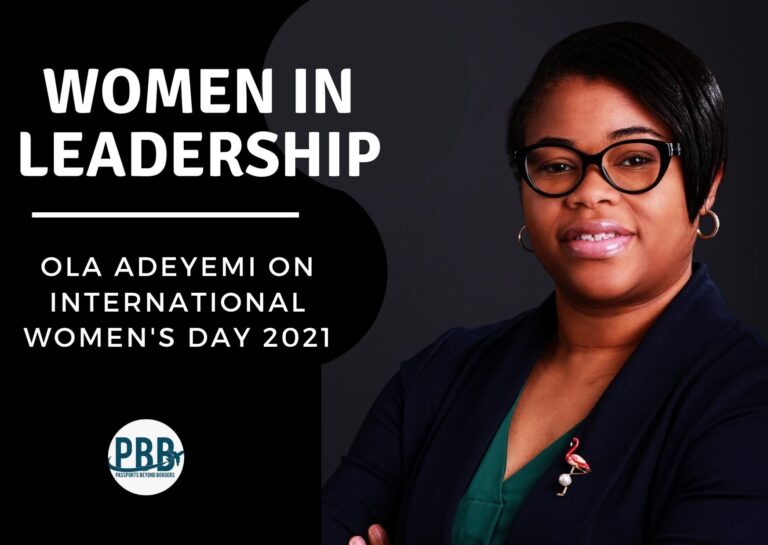First Published on March 8, 2021
The International Women’s day 2021 has as its theme “Women in leadership: Achieving an equal future in a COVID-19 world.” The theme celebrates the tremendous efforts by women and girls around the world in shaping a more equal future and recovery from the COVID-19 pandemic.
Ola Adeyemi is a wife, mom and founder of Ripples Print a business is focused on helping businesses/companies and also individuals to build brand recognition through the creation of quality and affordable prints and embroidery on various workwear ranging from Jackets, Polos, hoodies t-shirts all the works.
Ola shares her professional journey as the leader of her establishment and how she is reshaping the mindset of the younger generation.
Why did you move from Nigeria to the UK?
I moved to the UK after taking a study leave from my job in Nigeria to obtain a Master’s degree in International and Commercial law from the University of Aberdeen. After my studies, I decided to gain an amount of experience before returning home which was a decision my dad wasn’t too happy about because he has a law firm which we (My sister and I) had to manage. A few years later while gaining work experience in my field, I met my husband and we decided to start a family. So I stayed.
What does women’s day mean to you?
Personally, I think every day should absolutely be women’s day because we are kind of superhuman. Women’s day for me is celebrating women, their rights, and their voices. It is an interesting day for me to learn about women in different countries and how much they’ve accomplished and how much impact they’re making in the world.
You started your career as a lawyer, at what point in your life did you consider something else or what triggered a shift from a 9-5 to an entrepreneur?
I started working while l at the University pursuing my masters. I worked in the public sector precisely with Aberdeen city council under the environmental and sustainability department which was great as I did administrative related tasks. However, there was an aspect of unfulfillment as the opportunities for growth were slim. So I decided to pivot and did project management (Both levels of Prince 2) and then I started a new role as a project assistant and rose to project coordinator before leaving to focus on my creative business full-time.
I have always considered myself a creative person and I love creating things. Before I left my job, I started making hair bows and tutus for girls because my first child was a girl. Immediately, people started to take notice of the cute little bows I made for my daughter and started requesting I make for them too. This literally started as a hobby. So from hair clips, I started making tops and matching sets for not only my daughter but for occasions like parties, meetings etc. It wasn’t something I planned on going into full but the more I did it, the more it became a sustainable side hustle. Then my local church requested I make 200 T-shirts which was my biggest order.
In 2016 right after having my third child, it became very quite hectic managing work, kids, and side hustle. So that was when I made the decision to focus on my family and business.
The Pandemic has been a very difficult period for everyone. Even more so for women as they are expected to leave their jobs or cut back their working hours in order to balance work, homeschool and childcare. Your company has remained resilient in the midst of adversity. What is your contribution to maintaining this gender balance in your workplace?
My business is a properly registered business in the UK. So as an employer, I have the responsibility to understand the policies around equality, diversity and inclusion in the workplace. This is a balance that I have always maintained.
Also, I think there are unique aspects women bring to the table so it is more of an advantage having and maintaining this balance.
You are a Nigerian woman resident in Scotland (UK) and you run a company that employs locals. What does that feel like and what kind of CEO do you consider yourself?
I think it’s a mindset thing. If I want something, whether you are a white, black or yellow person I still want it and I go for it. Now, have there been times when I have been looked down upon? Oh yes, several times. But what matters most at that moment is how I decide to react towards it. Also, I did things very professionally during the recruitment phase. I hired an HR company to lay the contracts and an IT company to manage our systems. Also, what gave me an edge is that I am very knowledgeable in all aspects of my business and that puts my staff on their toes to deliver what I expect and beyond. They see how passionately driven I am driven and how I conduct my business so that makes management and delegation easy.
What is your advice to the community on handling these types of racial work dynamics?
What I will tell other women irrespective of where you are or whatever space you find yourself will be to work on yourself, learn to build people skills and management techniques. Be knowledgeable about your business and industry and conduct your business professionally.
Which female leader inspires you most and tell us about a women’s empowerment moment that has inspired you?
I am very inspired by Indra Nooyi. She is the president and CEO of PepsiCo. She is a woman, a minority in America of Indian origin who moved to the USA for studies. Her personal and professional growth is mindblowing and she is also so down to earth.
Also, the most recent appointment of Dr Ngozi Okonjo-Iweala as the new WTO Chief has broken down the barriers to what African women can achieve globally while maintaining originality.
You might also like:
How do you balance being a mother of 3 and being an Entrepreneur?
I think there is no balance. I choose who you want to be on a daily basis. Am I being a mom, a wife, an inlaw etc? I often ask myself this pertinent question of balance and I think it’s not possible to accomplish without choice. My husband is a doctor and he gets really busy as he works shifts and sometimes, I have deadlines to meet with my own work which makes it impossible to attend my kids PTAs. There are times when I have assured business deals to close and my daughter has her first nativity on that same day. Though gutted, I prioritize her over closing any deals. So I think it’s more about choice on a daily basis. And other times as spouses we prioritize each other. So it is more about having a structure and delegating or sourcing extra help with things like cleaning, laundry or even ordering food etc.
Most importantly, having a supportive and confident husband has been of tremendous help and gives me the groundwork to go ahead and dream of whatever I want to become.
How was your business impacted by the pandemic and what are your post Covid19 recovery plans?
During the first lockdown in April, we had absolutely zero income and this led to the termination of the contract of one staff member.
One other thing I did which I believe came from God was to work on my business strategy and processes. I saw that period of inactivity as a time to review all our paperwork and processes. At this time, the business invested heavily in marketing/publicity which most would consider silly but I had a plan. I knew the pandemic will eventually end and it is those who have a plan who will actually stand strong.
I got a consultant to help us with redesigning our sales process, understand our customers and build up our ideal client personas to gave us a forecast ahead. We did 3 scenarios, a worst-case scenario, status quo and best case to get a clear picture of the probabilities. So yeah the first lockdown was somewhat good as it gave me the opportunity to have clarity. We also got involved in fundraising projects (family first) for charity. So yeah we were soaring.
What are you most excited about the future of women?
If only women knew how much they were capable of, they will never doubt themselves not even for a minute. I am glad that mindsets are changing and women are stepping up and occupying seats which would never have been possible decades ago. This gives young women the ability to dream.
What lessons are you teaching your daughter and the younger generation of women in your circle?
Children learn more by watching their parents/guardians and my daughter sure watches me chase my dreams or ambitions. However, I am very deliberate about telling her that she can do all things. If she isn’t thriving in anything it’s because she hasn’t committed her mind to it. It’s not magic or rocket science. It’s about a mindset. First, because she is a child of God and secondly because she is my child (smiles).
I remember there was a particular time in her life where we had to work through this mindset thing. She enrolled in gymnastics and a year in when she wanted to get to the competition, required increased commitment practice hours. She attempted quitting because it got too hard. A lot of people do not understand that other people are impacted by whatever decision they make and the sacrifices required from them. So you cannot just quit on yourself and every other person because something is hard. If there’s nothing hard in your life your not learning. So, we didn’t let her quit because we knew she really liked it but it was just really difficult at that moment. We worked on her mindset and now she is absolutely thriving 5years in. And that goes for all the kids in my life I tell anyone to stay the course and you will see the result.
Go and change the world. Thank you
Did you enjoy reading this? Let us hear your story and how you are challenging the status quo and creating a better world for young girls.
You can also like our page on Facebook, Instagram and Youtube
Happy International Women’s Day from us at PBB
